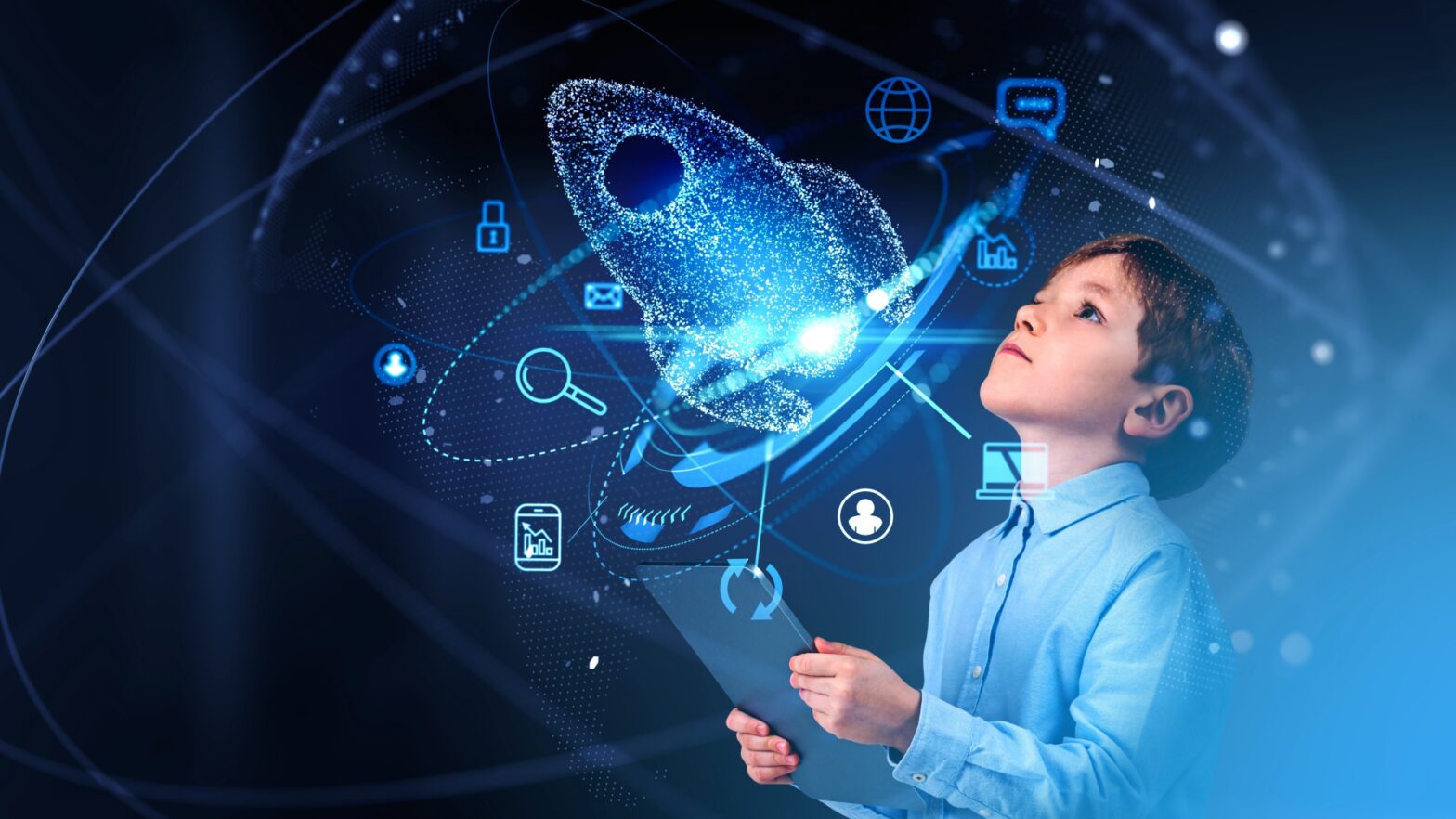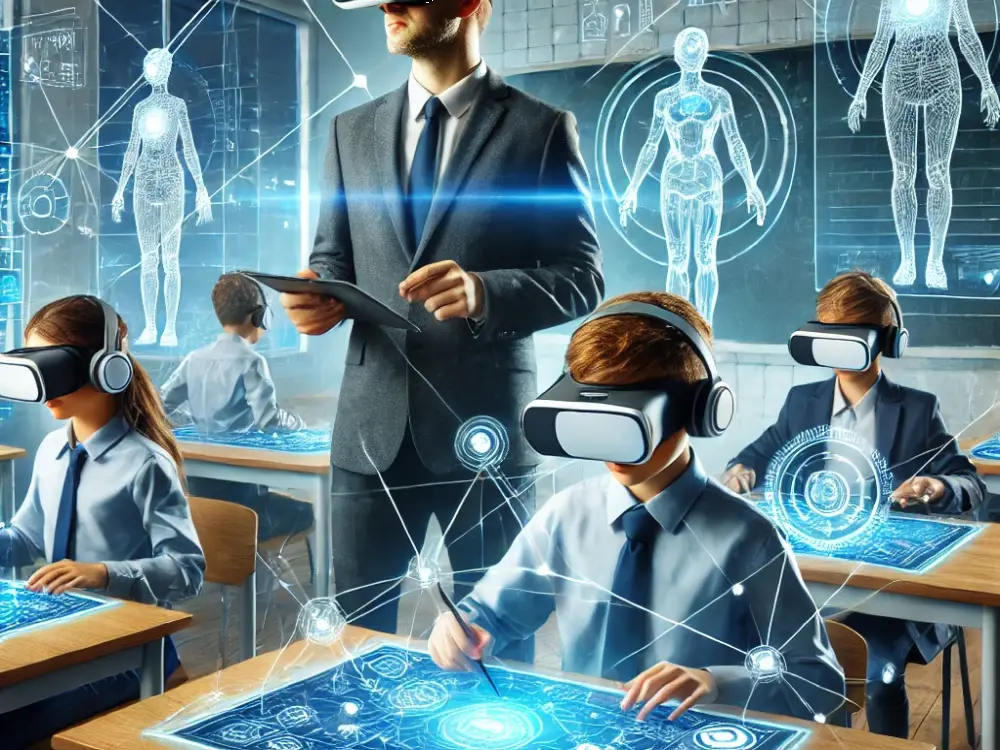Safeguard Your Future with Economical and Dependable Insurance
Safeguard Your Future with Economical and Dependable Insurance
Blog Article
Cutting-edge Methods for Enhancing Technology Education in Today's Learning Environments
Ingenious strategies, such as hands-on discovering experiences and joint project-based efforts, play an essential function in bridging theoretical principles with useful applications. As we explore these techniques, it becomes imperative to consider exactly how individualized learning can better enrich the instructional experience and foster a much deeper connection between trainees and modern technology.
Hands-On Knowing Experiences
Hands-on learning experiences function as a keystone in innovation education and learning, successfully connecting the void between theoretical knowledge and useful application. These experiential activities enable students to engage directly with tools, software application, and modern technology, cultivating a deeper understanding of ideas that are commonly abstract in standard class settings.
By integrating hands-on understanding, instructors can assist in a setting where trainees can experiment, innovate, and troubleshoot. This method not only grows technological abilities however likewise enhances problem-solving abilities, as pupils are motivated to face real-world challenges. Hands-on experiences frequently lead to raised pupil motivation and engagement, as students see the immediate importance of their researches to useful scenarios.
In addition, such experiences can take different forms, consisting of laboratory experiments, simulations, and interactive projects, every one of which cater to different understanding styles. The assimilation of hands-on discovering in technology education and learning likewise promotes retention of details, as trainees are most likely to bear in mind concepts they have actually actively functioned with as opposed to passively observed. On the whole, hands-on experiences are necessary in preparing students for the intricacies of the modern technical landscape, equipping them with the abilities and confidence required to succeed in their future occupations.
Collaborative Project-Based Discovering
Joint project-based knowing encourages students to function together in groups to address complicated, real-world troubles, fostering essential skills for the modern labor force. This approach urges active involvement, crucial reasoning, and creativity, as trainees negotiate functions, share responsibilities, and collectively design solutions. By immersing themselves in tasks that reflect authentic obstacles, learners establish a much deeper understanding of the topic while refining their capacity to communicate and collaborate successfully.
In modern technology education and learning, joint project-based learning can manifest through interdisciplinary jobs that integrate elements of layout, design, and coding. As an example, pupils could team up to develop a mobile application or layout a model that resolves a social concern, needing them to incorporate different technological principles and devices. This experiential knowing not only enhances technological efficiency but also cultivates analytic abilities and versatility.
Furthermore, such joint ventures advertise a sense of community among pupils, promoting social relationships and a shared commitment to their task results. As they browse the complexities of synergy, pupils learn to value diverse viewpoints and utilize each other's staminas, preparing them for future specialist environments where cooperation is important. Ultimately, collaborative project-based understanding is a cornerstone of reliable technology education.
Integration of Online Resources

The integration of on-line sources assists in accessibility to up-to-date information and sector standards, which is crucial in a quickly evolving technological landscape. By leveraging systems such as MOOCs (Massive Open Online Courses) and specialized educational sites, teachers can supplement standard curricula with real-world applications, making it possible for pupils to involve with existing fads and techniques.

Eventually, the thoughtful integration of on the internet resources in innovation education fosters a much more dynamic, appealing, and appropriate discovering experience, gearing up students with the abilities and expertise essential to thrive in a progressively digital globe.
Gamification Strategies in Education
The consolidation of gamification strategies in education stands for an effective method to additionally engage trainees and boost their understanding experiences. By incorporating game-like aspects such as factors, badges, and leaderboards into the educational program, teachers can boost inspiration and promote a sense of competitors among learners. These techniques motivate involvement and perseverance, especially in subjects that might otherwise appear intimidating.
Gamification can take numerous types, consisting of interactive tests, collaborative jobs, and immersive simulations, which permit students to apply their knowledge in practical contexts. This interactive strategy not just makes discovering satisfying but additionally reinforces vital concepts through rep and immediate comments. As pupils progress, they can track their accomplishments, advertising a growth frame of mind and a feeling of success.
Moreover, gamification helps with separated instruction by satisfying varied knowing styles and paces. Students are empowered to take ownership of their discovering journey, permitting an extra tailored academic experience. In an increasingly digital globe, making use of gamification methods can bridge the space between standard education and modern-day technical advancements, inevitably preparing pupils for future difficulties.
Personalized Discovering Approaches
Individualized finding try this out out methods are progressively identified as essential for resolving the varied demands and choices of students in today's educational landscape. These methods equip learners by tailoring academic experiences to specific passions, toughness, and finding out speeds, consequently improving interaction and retention.
In innovation education, customized understanding can take various forms, consisting of adaptive learning technologies, individualized curricula, and project-based knowing tailored to pupil rate of interests. Systems that utilize fabricated intelligence can analyze a trainee's performance data to recommend particular resources or activities that align with their discovering design.
Additionally, personalized knowing urges student company, permitting students to set objectives and select pathways that resonate with their desires (AI Tools). This freedom fosters a much deeper connection to the product, ultimately resulting in enhanced end results
Educators play a critical duty in this procedure, utilizing formative analyses to keep an eye on development and readjust instruction appropriately. Digital portfolios and collaborative devices can additionally facilitate tailored knowing, allowing trainees to assess go to this web-site their trips and showcase their success.
Verdict
In conclusion, boosting modern technology education and learning in modern discovering settings necessitates the execution of cutting-edge methods that focus on hands-on learning, joint projects, and the integration of on-line resources. Gamification techniques serve to increase interaction and inspiration, while personalized understanding techniques suit specific toughness and foster student agency. Jointly, these strategies develop a vibrant instructional experience that prepares trainees for real-world challenges and grows vital abilities for future success in a rapidly advancing technical landscape.
As we discover these methods, it comes to be imperative to consider just how customized discovering can additionally enhance the educational experience and promote a deeper link in between pupils and technology. The integration of hands-on knowing in modern technology education and learning additionally advertises retention of details, as trainees are a lot more most likely to remember principles they have actively functioned with instead than passively observed.The unification of gamification strategies in education represents a powerful technique to better engage students and boost their learning experiences. Students are encouraged to take ownership of their discovering trip, allowing for a more tailored educational experience.In conclusion, enhancing innovation education and learning in modern understanding settings demands the implementation of innovative strategies that prioritize hands-on learning, collaborative tasks, and the combination of on the internet resources.
Report this page